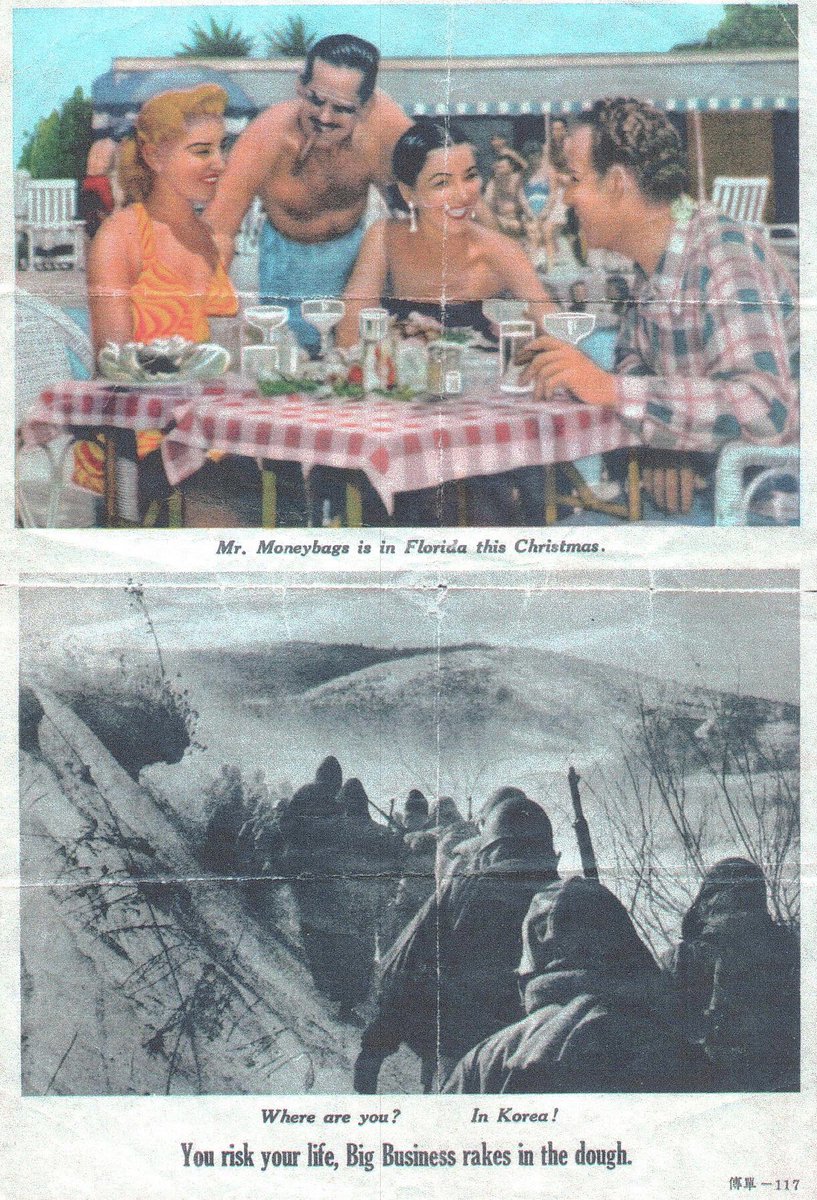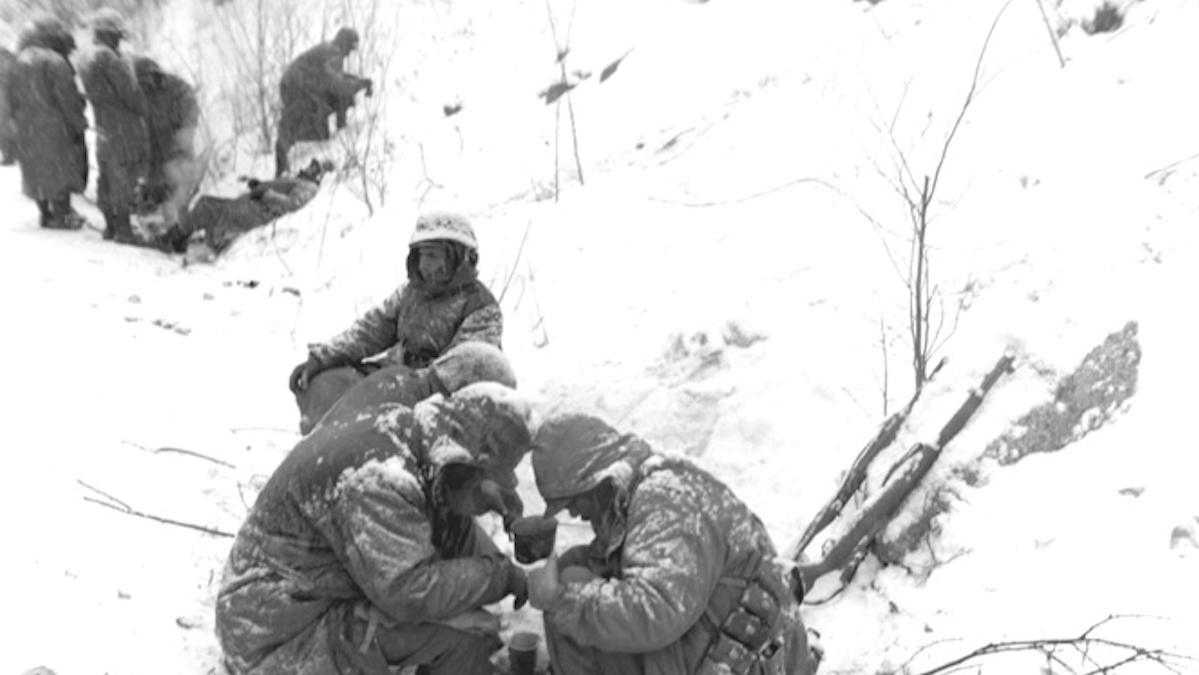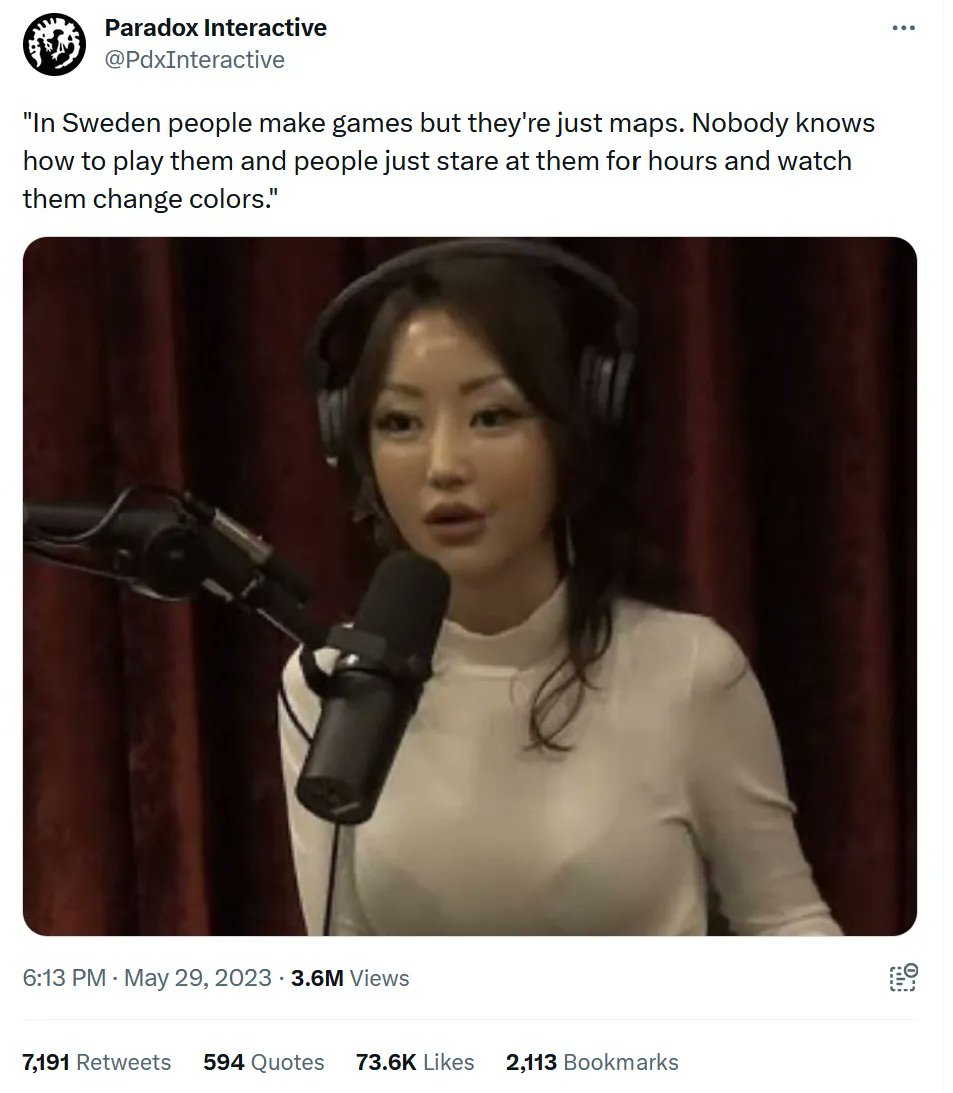On this day 73 years ago, the invasion of Korea began when State Dept. aide John Foster Dulles gave orders to Rhee Syngman (dictator of "South Korea") to breach the 38th parallel and advance into the People's Republic.
A thread 🧵on brainwashing.
A thread 🧵on brainwashing.

The history of the word brainwashing begins before it was ever uttered. The United States invaded Korea in 1950 and sent its GIs in a war that, these GIs quickly realised, they had actually no reason to fight.
If you want history on the war in the DPRK:
If you want history on the war in the DPRK:
https://twitter.com/prolewiki/status/1666083356210249734
It's no secret that many US and UN soldiers were captured as POWs by the People's Liberation Army and the Korean People's Army: more than 7200, as per US sources.
As POWs, they had access to books and were treated fairly well by the KPA and PLA, who also conversed with them.
As POWs, they had access to books and were treated fairly well by the KPA and PLA, who also conversed with them.
These conversations were informal and polite, and welcome to some POWs who had otherwise very little to do and were bored out of their mind.
Very quickly, some of these prisoners started understanding their detainers' point: why exactly were they fighting for the US in Korea? What were they doing here, instead of being at home with their family? Very few prisoners who dared to think of this question found an answer. 

This insubordination would not do in McCarthyist, genocidal America. Nothing short of blind obedience was tolerated.
Thus brainwashing was born in the US media. And its history is, of course, influenced by the CIA (it wouldn't be a thread without them).
Thus brainwashing was born in the US media. And its history is, of course, influenced by the CIA (it wouldn't be a thread without them).
In September 1950, 3 months into the war, journalist Edward Hunter published the article "Brain-washing Tactics Force Chinese Into Ranks of Communist Party" in the Miami Daily News. 

He claimed to explain the popularity of the Communist Party in China and why they were fighting in Korea (it was self-evident why the US was present)
He also proposed the idea that it was possible to "reprogram" someone so fundamentally that they would believe or do anything.
He also proposed the idea that it was possible to "reprogram" someone so fundamentally that they would believe or do anything.
He traced the word brainwashing to xi nao (洗脑), "wash brain", which was supposedly used in China but for which we found absolutely no references. Prof. Ryan Mitchell even notes how Mao and other party officials in the 60s and 70s found the term amusing as an American invention.
The context of how this word came to be in the English language is not insignificant. Brainwashing is an orientalist term: it's a *secret* practice, using *ancient* techniques that only the *mystical* Chinese know and have access to.
Not like the free Americans of course, who are free to believe what they want and always do the right thing.
Hunter was later revealed to be a CIA agent, and his article was written purposely as war propaganda for the US regime in Korea.
Hunter was later revealed to be a CIA agent, and his article was written purposely as war propaganda for the US regime in Korea.
Hunter's story helped propagate yellow peril anticommunist narratives around China, who was a major ally to the DPRK and helped push the invaders back to the 38th parallel, after which they signed a peace deal.
The damage had already been done though, and brainwashing entered the mainstream discourse, persisting ever since. It was even the central theme of the 1962 movie The Manchurian Candidate. 

The POWs we were talking about defied belief back home by turning against their imperial masters and joining the side of the Koreans: 5000 of the 7200 POWs petitioned the US government to end the war. 21 of them refused repatriation after the war and stayed in the DPRK.
This simply would not do for the US government, who was already present in Korea on flimsy reasons (they held separate elections in the South against the wishes of the Korean people and propped up the military dictatorship of Japan collaborator Rhee Syngman).
Common people in the US were shocked about the reality of the war and started questioning the propaganda they had been subject to: if our soldiers were against the war, did it mean we shouldn't be fighting there?
Thus Hunter's story was the basis to defame and completely discredit those POWs domestically. Brainwashing explained that they became "corrupted" by communism. The media later discredited these soldiers as having low IQs, being alcoholics, or having STDs.
All to explain how they could have let themselves be fooled by the communists and thus brainwashed; fundamentally reprogrammed so as to believe the antithesis of what they grew up on. They were not "good old American boys", they were men of low character.
These attacks against their character also served the purpose of keeping support for the war high by preventing more defections. Any other soldier who dared stand against the war would see their personality destroyed by the media when they came back home.
Likewise at home, if you started believing these soldiers, it might mean you were a person of low moral character as well...
This defamation was doubly cruel. First the US sent its people to die in a pointless war, and then they attacked them when they spoke out.
This defamation was doubly cruel. First the US sent its people to die in a pointless war, and then they attacked them when they spoke out.
The United States also propagated the idea that these soldiers were tortured so severely that they simply confessed to anything their captors demanded, but these accusations are denied by the PLA & PVA and KPA who assert they have never used torture methods on prisoners of war.
This assertion is backed up by other POWs taken by China, such as Indian POWs during the 1967 conflict. The US, who to this day tortures their non-POW detainees, has not brought up any piece of evidence to prove the PLA and KPA tortured POWs.
And while we're at it, the accusations that the Chinese and Korean armies were "withholding " food and medicine is an unfounded accusation. They did not even have food and medicine for their own soldiers after the US destroyed their logistics and agriculture. 

After the war, as we said, several soldiers stayed in the DPRK. The soldiers in this famous picture were tracked down somewhat recently. Most went back to the US after a decade or so. Some appeared in movies (playing the bad guys) while in the DPRK. 

This photo is interesting because in 1951, the US was still heavily segregated. Yet here three brothers, 2 white and 1 Black, are seen posing for a picture with their arms on each other's shoulders.
Two of the nonrepatriates went back to the United States during the 90-day armistice talks, and were promptly court martialed and sentenced to 5 and 10 years in prison. This is how the US has always treated its whistleblowers.
Eventually, the US did it again: they accused others of what they themselves were doing. In 1953, right after the war was over, the CIA started Project MK Ultra, which attempted to alter people's behaviours and beliefs, and culminated in many unethical and illegal experiments.
Brainwashing itself has sort of exited the mainstream discourse. It's used these days mostly as a shorthand to mean "you'll believe anything". But it's only one dot in the history of anti-Asian hate, which started all the way back in the 19th century and continues to this day.
But that's a topic for another thread. For sources and more information on brainwashing, check out our page here:
en.prolewiki.org/wiki/Brainwash…
en.prolewiki.org/wiki/Brainwash…
• • •
Missing some Tweet in this thread? You can try to
force a refresh

 Read on Twitter
Read on Twitter










